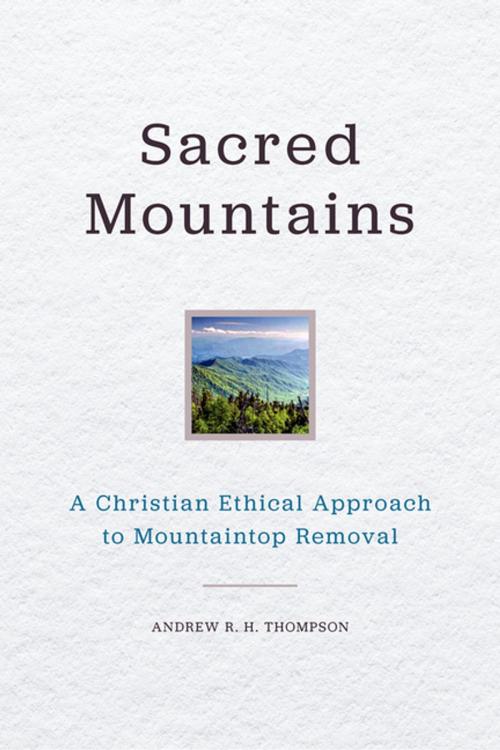Sacred Mountains
A Christian Ethical Approach to Mountaintop Removal
Nonfiction, Science & Nature, Nature, Environment, Environmental Conservation & Protection, Religion & Spirituality, Theology, Christianity| Author: | Andrew R. H. Thompson | ISBN: | 9780813166001 |
| Publisher: | The University Press of Kentucky | Publication: | November 3, 2015 |
| Imprint: | The University Press of Kentucky | Language: | English |
| Author: | Andrew R. H. Thompson |
| ISBN: | 9780813166001 |
| Publisher: | The University Press of Kentucky |
| Publication: | November 3, 2015 |
| Imprint: | The University Press of Kentucky |
| Language: | English |
On a misty morning in eastern Kentucky, cross-bearing Christians gather for a service on a surface-mined mountain. They pray for the health and renewal of the land and for their communities, lamenting the corporate greed of the mining companies. On another day, in southern West Virginia, Andrew Jordon hosts Bible study in a small cabin overlooking a disused 1,400-acre surface mine. He believes his efforts to reclaim sites like these represent responsible environmental stewardship.
In Sacred Mountains, Andrew R. H. Thompson highlights scenes such as these in order to propose a Christian ethical analysis of the controversial mining practice that has increasingly divided the nation and has often led to fierce and even violent confrontations. Thompson draws from the arguments of H. Richard Niebuhr, whose work establishes an ideal foundation for understanding Appalachia. Thompson provides a thorough introduction to the issues surrounding surface mining, including the environmental consequences and the resultant religious debates, and highlights the discussions being carried out in the media and by scholarly works. He also considers five popular perspectives (ecofeminism, liberation theology, environmental justice, environmental pragmatism, and political ecology) and offers his own framework and guidelines for moral engagement with the subject.
Thompson's arguments add to the work of other ethicists and theologians by examining the implications of culture in a variety of social, historical, and religious contexts. A groundbreaking and nuanced study that looks past the traditionally conflicting stereotypes about religion and environmental consciousness in Appalachia, Sacred Mountains offers a new approach that unifies all communities, regardless of their beliefs.
On a misty morning in eastern Kentucky, cross-bearing Christians gather for a service on a surface-mined mountain. They pray for the health and renewal of the land and for their communities, lamenting the corporate greed of the mining companies. On another day, in southern West Virginia, Andrew Jordon hosts Bible study in a small cabin overlooking a disused 1,400-acre surface mine. He believes his efforts to reclaim sites like these represent responsible environmental stewardship.
In Sacred Mountains, Andrew R. H. Thompson highlights scenes such as these in order to propose a Christian ethical analysis of the controversial mining practice that has increasingly divided the nation and has often led to fierce and even violent confrontations. Thompson draws from the arguments of H. Richard Niebuhr, whose work establishes an ideal foundation for understanding Appalachia. Thompson provides a thorough introduction to the issues surrounding surface mining, including the environmental consequences and the resultant religious debates, and highlights the discussions being carried out in the media and by scholarly works. He also considers five popular perspectives (ecofeminism, liberation theology, environmental justice, environmental pragmatism, and political ecology) and offers his own framework and guidelines for moral engagement with the subject.
Thompson's arguments add to the work of other ethicists and theologians by examining the implications of culture in a variety of social, historical, and religious contexts. A groundbreaking and nuanced study that looks past the traditionally conflicting stereotypes about religion and environmental consciousness in Appalachia, Sacred Mountains offers a new approach that unifies all communities, regardless of their beliefs.















